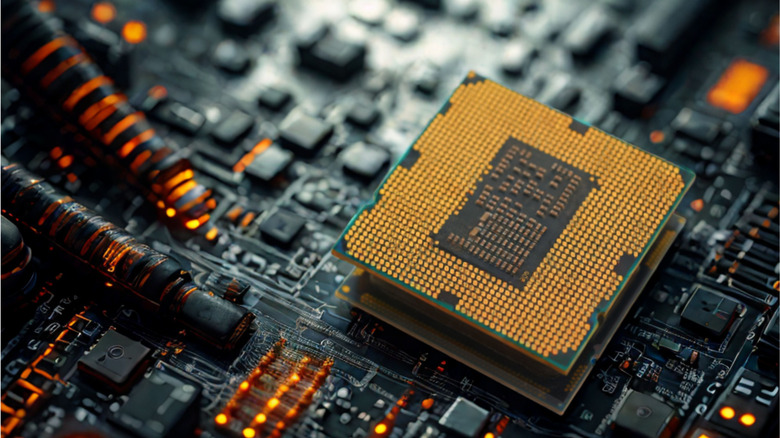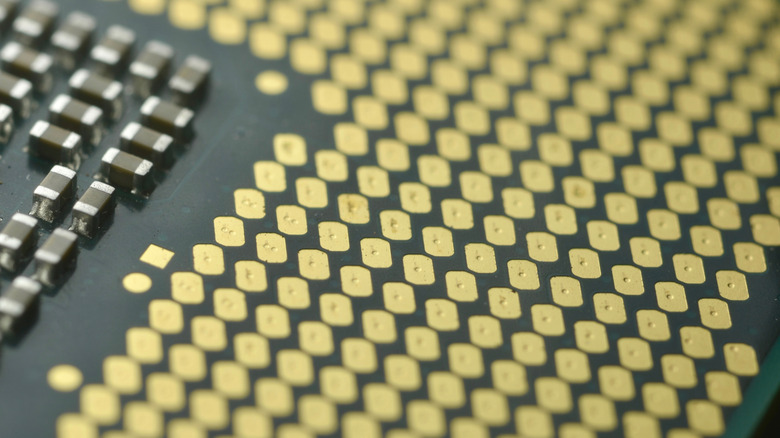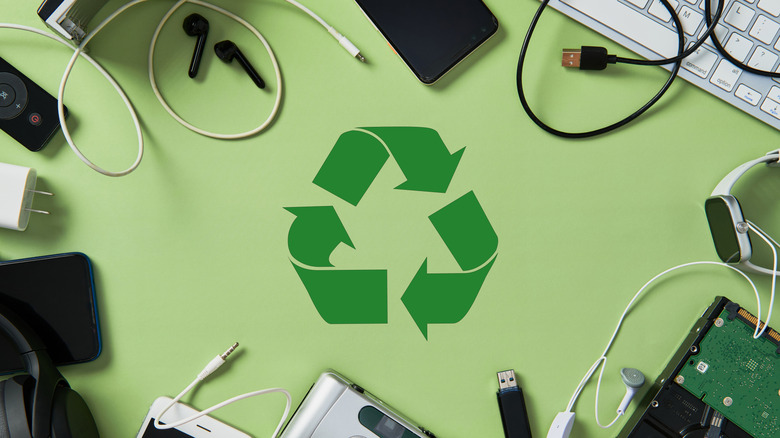Yes, There's Gold Inside Your Household Electronics - But Is It Actually Worth Anything?
If you open almost any modern gadget you'll almost definitely strike a tiny bit of gold. Thanks to the precious metal's high conductivity and resistance to corrosion it's used on printed circuit board connectors, microchip pins, and other points of contact. In 2023 about 5% of the gold used in the U.S. in 2023 was inside gadgets like mobile phones, laptops, TVs, and game consoles. Its applications aren't limited to electronics, either — the McLaren F1 used real gold in its engine.
But before you grab a headlamp and tiny pickaxe to mine your old laptop for gold, you should know that you won't get much out of it. While there really is gold in them thar machines it's used very sparingly, particularly in newer electronics that are designed to use fewer rare resources. Electronic waste (e-waste) recyclers will tell you that you can only earn money by processing thousands of devices, not just a few of your family's old ones.
The amount of gold in any one device is small, and the process of separating it from less valuable materials can cost more than the gold is worth. Certified e-waste recyclers process these items in bulk, keeping what can be reused while the rest is sent to refiners who separate precious metals from plastics safely and efficiently. When it's done right, more than 90% of incoming equipment can be repurposed or responsibly processed.
Where the gold hides and the difficulty extracting it
Gold's malleability and compatibility with other conductive metals makes it especially useful in computer components. Circuit boards, memory modules, and processors all use thin layers of gold to keep connections stable. Because of the recent industry-wide push to reduce the use of rare resources, older electronics can often provide a more satisfying return. A single vintage processor can hold a few tenths of a gram of gold, and a heavy desktop computer might yield a couple grams. Harvest a handful of machines, and you could come out of things with a few grams of gold. At the current price of about $136 a gram, that's not enough of a yield to cover the cost of extracting the metal.
Separating gold from electronic waste is also a dangerous operation. Professionals use solvents like hydrochloric and nitric acids in concentrations strong enough to burn skin and produce toxic fumes. Some recyclers use electrolysis and controlled incineration, which aren't suited for basement or garage DIY endeavors. In short, trying any of this at home is unprofitable, dangerous, and probably illegal.
Companies that specialize in repurposing old electronics can handle the process safely. They collect large batches of discarded electronics, recover the reusable pieces, and send what remains to licensed refineries. There, technicians extract gold, silver, and palladium efficiently and responsibly. The electronics recycling business is becoming more and more profitable too, after some states made it illegal to throw away old electronics.
It's best to take your old electronics to a certified recycler
Not only are the amounts of gold, silver, palladium, and platinum in old electronics miniscule, but they are mixed with a lot of low-value material like plastic and aluminum. Some certified recyclers might even charge a fee to take e-waste off your hands as disassembly, sorting, and safe battery disposal can be costly. If electronics recycling is done right and on a large scale there is some money to be made, but the positive environmental impact can't be discounted. The amount of e-waste we generate keeps increasing, but recycling efforts haven't kept pace. This means that many tiny lodes of precious metals are wasted, and mining for fresh supplies has its own negative consequences.
The movement to recover precious metals from old devices is called "urban mining" and is quickly gaining momentum. Established e-waste recycling companies and aggressive newer ones are working on cleaner and more efficient ways to get gold out of used electronics, particularly circuit boards. So while you won't strike it rich melting down your old smartphone, you can still do something valuable with it. Instead of tossing it in the trash (which might be against the law) or paying to recycle it, try to give your device new life. There are some great ways to use an old Android phone, and working smartphones of any type can be donated to organizations like secure the call to help at-risk senior citizens and victims of domestic violence get help in emergencies. You can also donate old but functional electronics to a thrift store that supports a worthy cause; the gold in these devices isn't worth much but an old laptop or phone might be useful to someone else.


